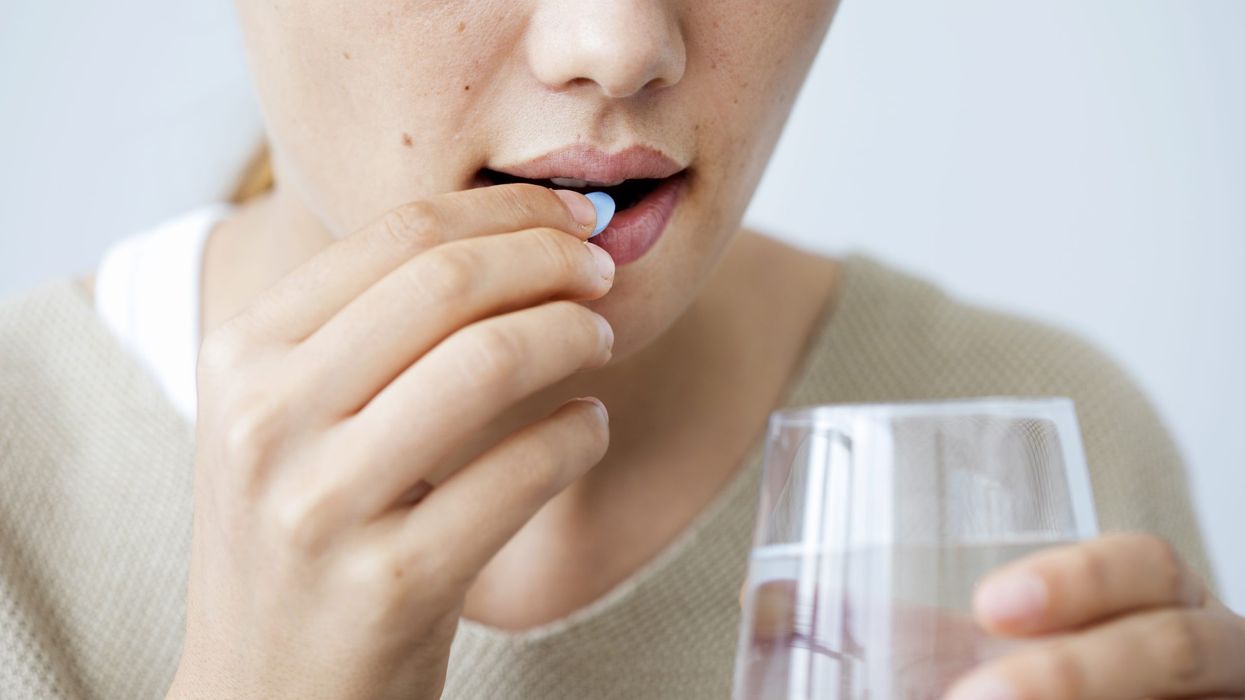Ibuprofen is a common drug in the UK as it helps provide relief from a number of ailments. But not many may be aware that this painkiller could cause some unpleasant symptoms known as ibuprofen toxicity, the Mirror informs.
Categorized under a class of drugs which are known as Non-Steroidal Anti-Inflammatory Drugs (NSAIDs), ibuprofen is widely available to treat everyday aches and pains, period pain, and bruising.
However, experts warn that there are some lesser-known risks to taking this medicine regularly.
The International Foundation for Gastrointestinal Disorders, states “NSAIDs have become a very important weapon in the control of inflammation and pain in joint disease, and in other chronic, painful conditions.”
It adds, “Their use has been limited by their propensity to cause gut symptoms or actually damage the gut.”
Besides damage to the gut, the site also warns about blood clotting effects, ulcers, and “sometimes life-threatening intestinal bleeding."
Older women are at greater risk, it said.
Additionally, experts affirm that NSAIDs aggravate stomach issues and therefore, may increase the risk of irritable bowel syndrome (IBS), a painful condition that causes symptoms like bloating, stomach cramps, diarrhoea, or constipation.
The painkiller is also known to negatively alter an individual’s gut microbiome. Gut health is important for boosting the immune system, it also helps to absorb nutrients from foods to fuel the body, and even boosts a person’s mood.
An earlier research paper looked at 287 IBS patients and the medications they were taking which possibly aggravated their condition.
The research noted, “Medications that may alter intestinal homeostasis such as NSAID.”
Homeostasis is reportedly a person’s ability to maintain equilibrium under the interaction between the gastrointestinal tract, nutrition, energy, and metabolism.
Another study that was published in the journal Microbiome discovered that some common drugs could have a dramatic effect on the gut microbiome. According to the study, the drug ibuprofen can actually destroy a person’s gut bacteria, in the same way, antibiotics do.
To help reduce IBS threat when taking ibuprofen, the site irritablebowelsyndrome offers some helpful tips.
These include:
• Always take the drug with your food
• Stick to a diet that is IBS-friendly – especially while on NSAIDs
• Take the minimum dosage to manage any pain
• Read the label on the bottle of the NSAIDs you choose so that you don’t exceed the daily dose
• Try to replace NSAIDs with other oral alternatives
• To manage pain, consider using topical ointments, creams, and lotions.
In yet another study published in the National Library of Medicine, the toxicity symptoms of Ibuprofen were further explored.
The study noted that “Ibuprofen is one of the most commonly used and prescribed medications in the world with an overdose of ibuprofen may be self-injurious, suicidal, or accidental.”
The research also found complications including both “gastrointestinal problems as well as hepatic and renal damage.”
Hepatic damage means liver issues, while renal damage refers to problems with the kidneys.
The researchers add, "The more serious gastrointestinal effects are not common and include occult blood loss, GI haemorrhage, ulcer, and pancreatitis.
“While some patients experience increases in liver enzymes, hepatic side effects, including cholestasis, jaundice, hepatitis, and hepatic failure, are rare.
“Renal complications include urinary retention/insufficiency, acute renal failure, nephrotic syndrome, and acute tubular necrosis.”
The research also adds that on rare occasions cardiac issues such as high blood pressure, complications involving the nervous system comprising dizziness, or hepatological issues for example platelet dysfunction (bleeding disorders or blood clots) were reported.




